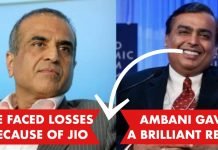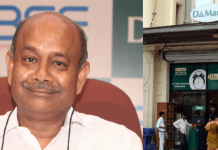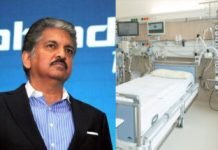Seldom we come across people who are extraordinarily dedicated to their ambitions and they do leave a permanent influence on the mass of mankind.
This story is about one such person, whose work has inspired many: Elattuvalapil Sreedharan!
Fondly pronounced as the metro man of India, was born and brought up in 1932 in Karukaputhur, Kerela. He is the man who has changed the life of so many with his excellent job, hard work and determination.
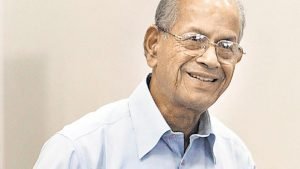
Sreedharan completed his education from Victoria College in Palghat and decided to pursue civil engineering.
After getting a degree in engineering, Sreedharan was appointed as a lecturer in civil engineering at the Government Polytechnic, Kozhikode. He appeared for the Engineering Service Examination in 1953, conducted by the UPSC and passed it successfully. After joining the Indian Engineering Service (IES), Sreedharan was posted in the Southern Railway in 1954 as a Probationary Assistant Engineer.
Numerous hurdles extended his approach. Sreedharan was 30 while a cyclone in December 1954 damaged the Pamban Bridge critically, which united Rameshwaram and Tamil Nadu. The people of Rameshwaram were left secluded from the land. The railways set six months’ time to rebuild the bridge but his boss demoted it to three.
Sreedharan was made the in-charge to execute this work. There was a lot of pressure on him, but he completed the project in 45 days through his hard work and dedication. His work was recognized by the railways and he was felicitated by the Railway Minister.
In 1970, he was appointed as the deputy chief engineer and was assigned the responsibility of implementing, planning and designing the Calcutta metro, the first ever metro in India. Sreedharan led the successful completion of the job and laid down the modern infrastructure engineering in India.
In 1979, Sreedharan joined the Cochin Shipyard as the chairman and managing director. The production of its first ship Rani Padmini was delayed for a long time as the agency was not performing well. After Sreedharan took over the job, he made sure that the work was done properly. As a result, the first ship of the shipyard, MV Rani Padmini was launched.
Sreedharan was promoted as the general manager of Western Railway in 1987. After his retirement in 1990, the government told him that his service was still needed and thus, he was appointed as the CMD of Konkan Railway on the contract basis.
The project begot 93 tunnels with a total length of 82 km. It was unprecedented in many regards, which traversed 760 km and had over 150 bridges. The work was finished in seven years under his supervision.
Sreedharan faced many challenged in his life. His biography ‘India’s Railway Man: A Biography of E Sreedharan’ has apprehended his life very closely.
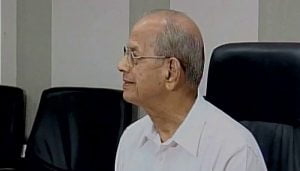
The book reveals how as the managing director of a multi-crore corporation the Konkan Railway, Sreedharan received a salary of mere Rs 1080. How he was bribed with a suitcase to reverse the decision he made to replace wooden sleepers on Indian railways to concrete sleepers.
He was made the managing director of Delhi Metro Rail Corporation. Under his supervision, all the scheduled work was completed on time and under budget. And it was only then when he was named as ‘The Metro Man’.
His work in making the Delhi metro and making the lives of so many people central was acknowledged by the system.
He was awarded the Padma Shri and Padma Vibhushan by the Government of India and the Chevalier de La legion d’honneur (Knight’s Honor) by the Government of France.
Even after years of working with Konkan Railway and the Delhi metro and being retired, Sreedharan did not stop working for his country. He was appointed as chief advisor for proposed Lucknow Metro Project and Principal Advisor of the Kochi Metro Rail Project.
There are a very few people like Sreedharan. Today, he is 85 years old but refuses to sit back at home. He is a father of four children and never misses to spend time with his wife, Radha. Sreedharan starts his day with meditation and does not spend a day without reading the Bhagavat Geeta, which gives him the courage and energy to work.
He quote:
Whatever to be done, I do. But in reality, I do not do anything.

